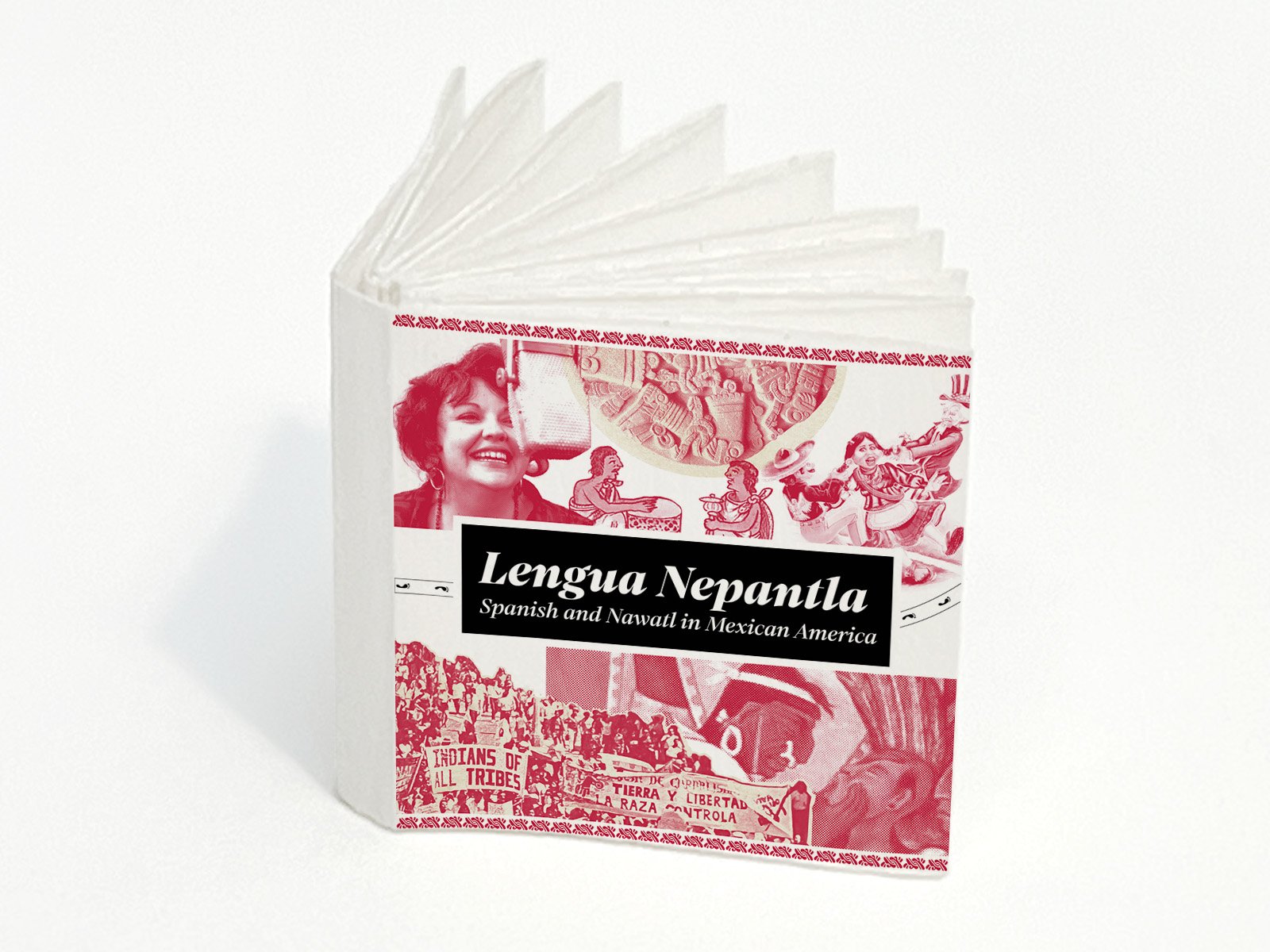



Lengua Nepantla: Spanish and Nawatl in Mexican America
Joseph Enriquez-Miramontes
Spanish colonization and US imperialism have marginalized Mexican American and Chicano identities by suppressing their ancestral languages. During the 20th century, US academic institutions and law enforcement condemned the use of the Spanish language in response to the growing number of Mexican immigrants. Between the 16th and 19th centuries, the Spanish colonials and missionaries similarly stigmatized Nawatl/Nahuatl, Mexico’s former common language, along with more than 68 indigenous languages. Renowned post-colonial theorist Frantz Fanon points out that these stigmatizations are colonial tactics that reduce conquered peoples’ personal identity. For Mexican Americans and Chicanos, their indigenous and mestizo (mixed race) ancestors were forced to hide, forget, and repent their language and their heritage.
Lengua Nepantla: Spanish and Nawatl in Mexican America visualizes the Mexican American and Chicano reclamation of these two languages and their resistance to the history of forced assimilation. To reveal how life and language develop around the U.S.-Mexico border, the title uses the words lengua, Spanish for tongue or language, and nepantla, Nawatl for in-between. The four divisions within the book walk the reader through the process of linguistic reconnection and parallel the experience of navigating cultural identity. The accordion-fold booklet echoes a revived tradition known as Chicano codices, a medium that blends art and literature, fusing traditional indigenous knowledge and pop culture. The use of collaged images, Mesoamerican pictographs, and the Latin alphabet demonstrates how visual language reflects and celebrates the spoken hybrid language.
This project affirms that linguistic reconnection has no ultimate goal to designate its completion. Throughout single lifetimes and spans of generations, people may return to their roots multiple times, learning something new about their identities each time. Linguistic reconnection is a never-ending journey that simply repeats itself, like the codex itself.
